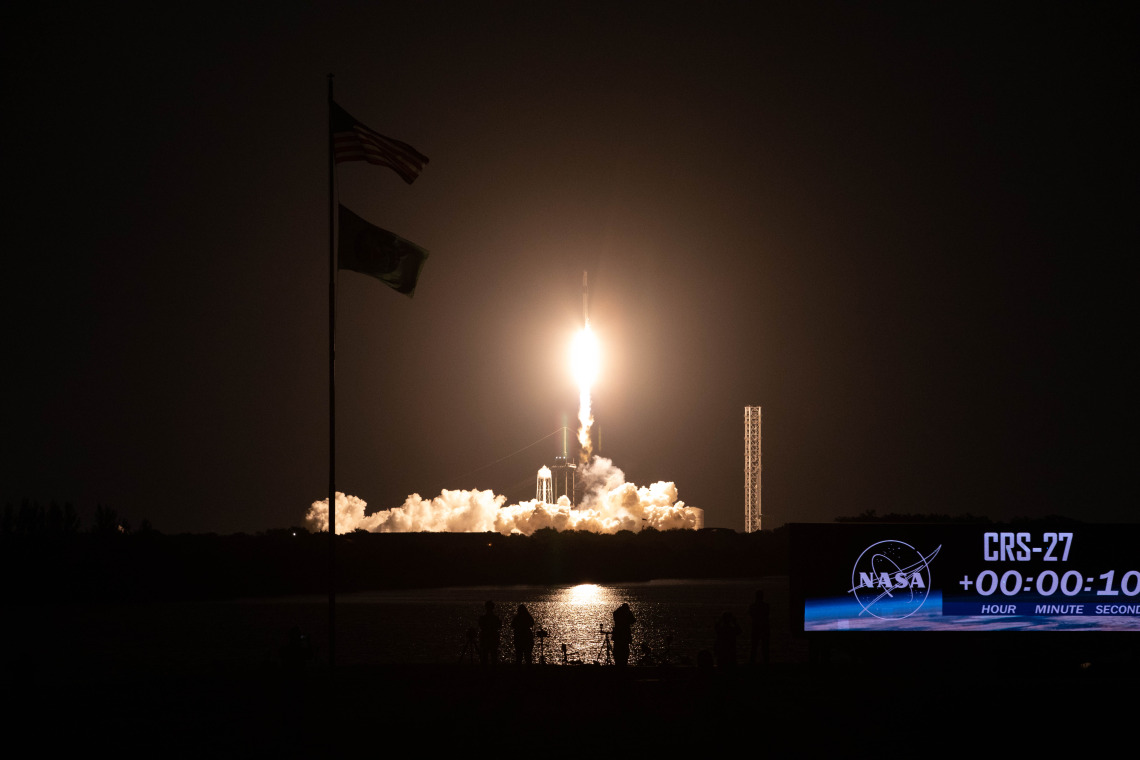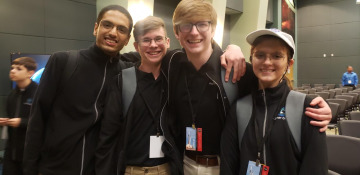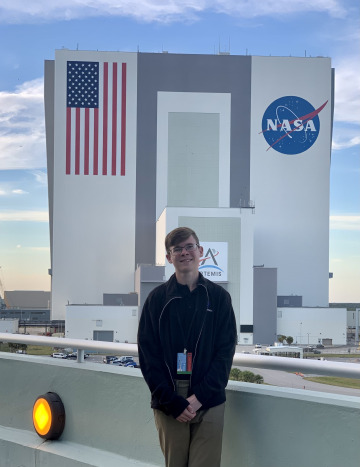Navajo County 4-H Member's Science Project on International Space Station
Cove Searle designed the experiment with other 4-H members at Go For Launch! space camp in summer 2022 and watched the launch from the John F. Kennedy Space Center on March 14.

This SpaceX Falcon 9 rocket lifted off March 14 carrying a science experiemnt designed by Navajo County 4-H member Cove Searle.
Photo courtesy of NASA
Navajo County 4-H club member Cove Searle had an out-of-this-world experience recently, when he traveled to Florida to watch SpaceX launch a rocket carrying a biology experiment he helped design.
Along with three 4-H team members from other states, Cove watched the March 14 launch from more than 2 miles away - the closest witnesses are allowed to the Cape Canaveral launchpad, he said.
"You could feel the sound vibrations, and it was rattling the shingles on the roof. It was really amazing," said Cove, 16, who is a sophomore at Joseph City High School.
The aspiring engineer is a member of Rodeo Trash Horse Club in Joseph City, Arizona. Cove’s experiment traveled two days in the 230-foot Falcon 6 rocket’s Dragon cargo compartment, which is on a resupply mission to the International Space Station. The reusable ship docked with the ISS on March 16, SpaceX said.
You can watch the launch and a video about the mission here.

Cove Searle's (second from left) space camp science team, Space Goats, visited Cape Canaveral, Florida for a SpaceX rocket launch.
Cove Searle
A technology company, Space Tango, built the experiment, which will test the effect of microgravity on the growth of the cyanobacterium spirulina, which can be made into food or fuel, Cove said.
"It's about 70 percent protein. It's very high in protein ... or it can be used to make ethanol, which is also another really important resource to have up in the International Space Station," he said.
The spirulina is growing in two 2-inch cubes, where cameras allow the team to monitor growth and compare it to a control experiment on Earth. The experiment is set to return to Earth next month.
Four teams had experiments on the rocket. Cove and fellow 4-H members Krish Nangia, Celine Torkzad, and Nolan Williams, each from a different state, designed their experiment at Go For Launch! space camp in 2022. Twelve Arizona 4-H members were at the camp. Initial funding for the program came from an International Space Station National Laboratory grant, and travel to the space camp and launch was funded by the Arizona 4-H Youth Foundation.
4-H Science, Technology, Engineering, and Math programs like this are important to build a future where youth can thrive, said Gerardo Lopez, an associate Extension specialist and 4-H assistant professor.
Current STEM students are paving the way to that future, but there are problems.

Cove Searle watched the launch from this rooftop 2 miles from the launchpad.
Photo courtesy Cove Searle
"There's a shortage (of STEM students). We're seeing it already in computer science, in electrical science, engineering, astronomy. There's already a lot of fields where we're not seeing that pipeline," Lopez said.
Cove, who since his earliest memories has wanted to be a structural engineer, can inspire other kids to follow a path to science, Lopez said during a recent Zoom call.
"You, Cove, being there, standing there in front of them, that was really, really important. That's impactful for them, because they see themselves in you. They can see you as a role model, as someone who is passionate about a science," Lopez said.
Programs that expose kids to science jobs are important, because kids often choose careers they've been exposed to, said Stacy DeVeau, senior STEM coordinator for 4-H Youth Development.
"The more we can expose them to, the broader their horizon becomes," DeVeau said.
The non-profit Higher Orbits worked with NASA, SpaceX, and payload specialists Space Tango to get the four experiments to the ISS. Higher Orbits has facilitated the launches of 17 experiments, the nonprofit said in a news release.
Higher Orbits is a non-profit organization creating an experiential learning lab for secondary school students across the United States, focused on space exploration, research, and spaceflight to launch the next generation’s workforce, according to the news release.
